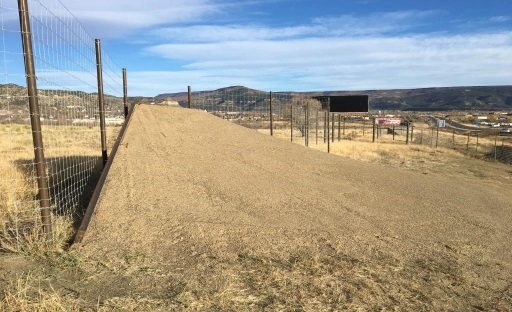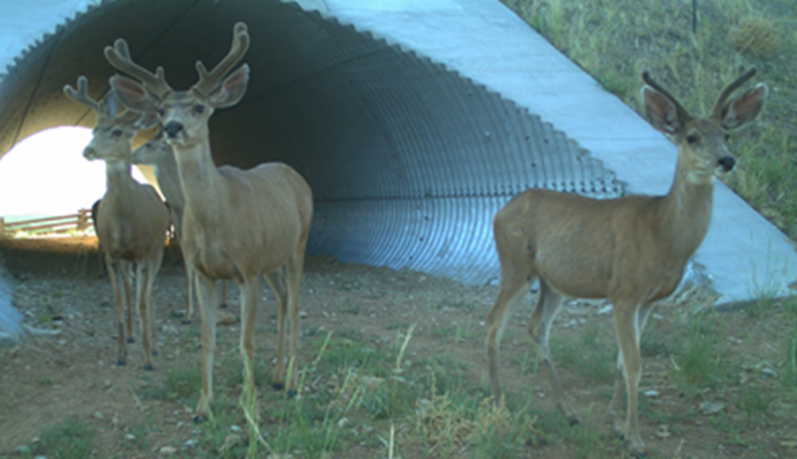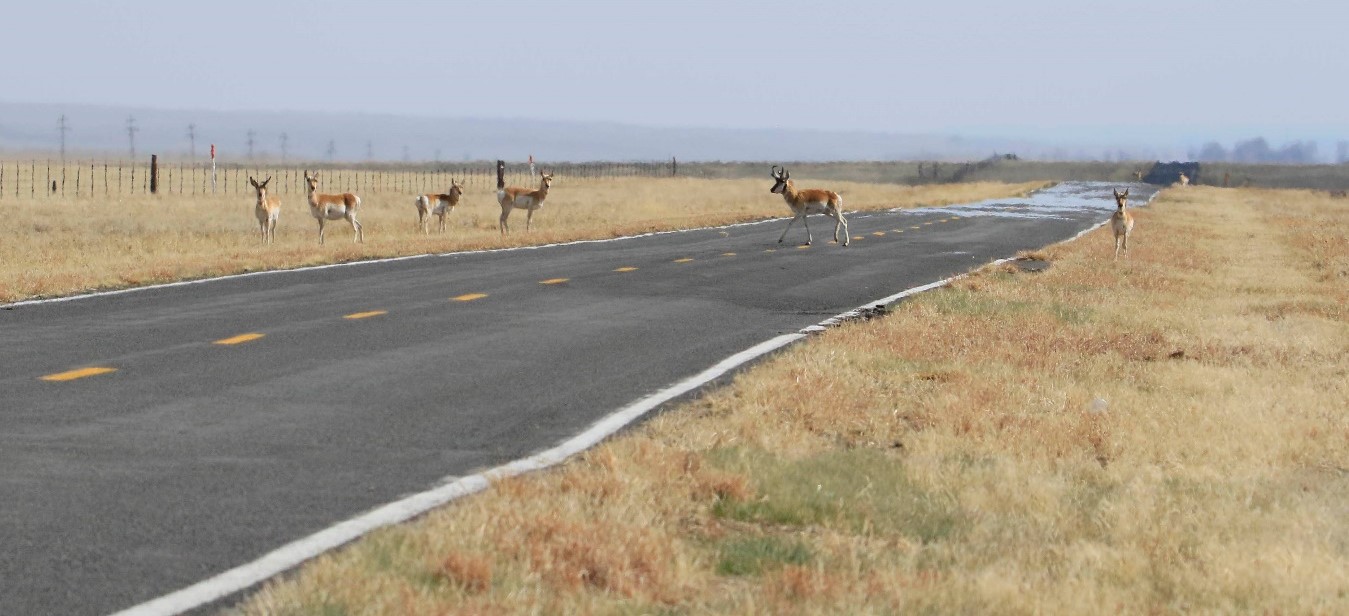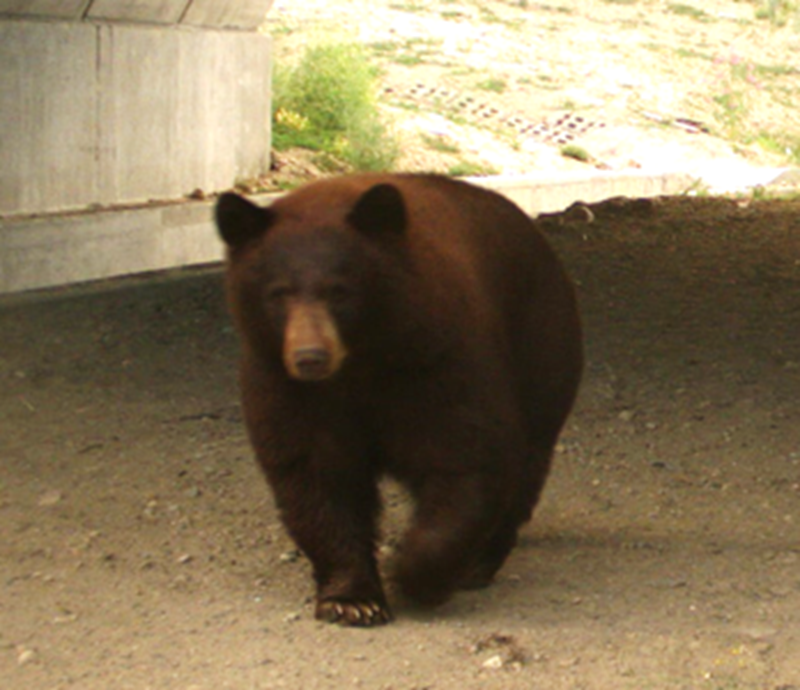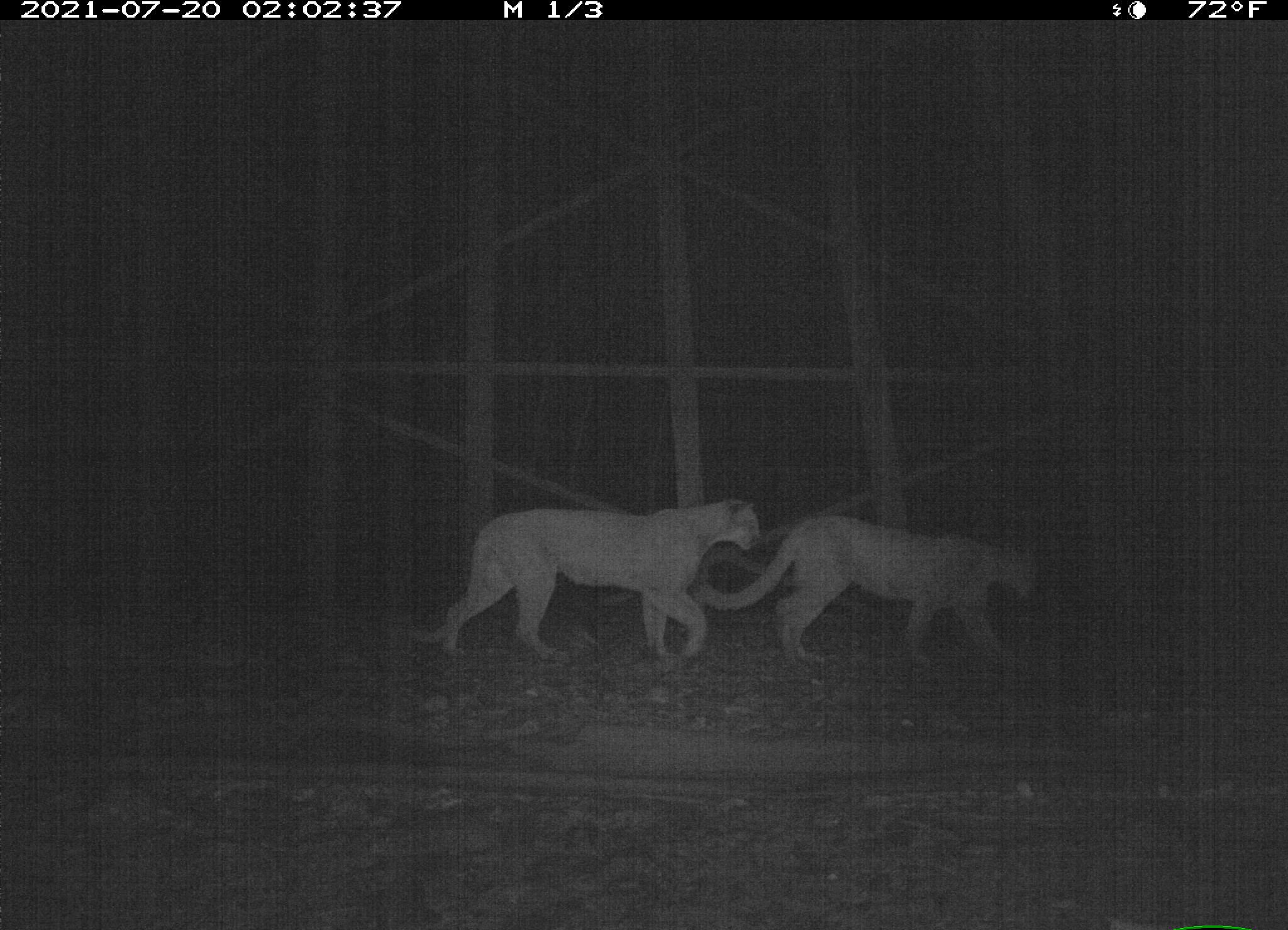Program Overview
Development of the Wildlife Corridors Action Plan
The New Mexico Department of Transportation (NMDOT) in partnership with the New Mexico Department of Game and Fish (NMDGF) recently finished developing an initial draft of the Wildlife Corridors Action Plan (Plan) in accordance with New Mexico Senate Bill 228, the Wildlife Corridors Act (Act). The Act, signed into law by New Mexico Governor Michelle Lujan Grisham in 2019, directs the NMDOT and the NMDGF to develop the Plan for NMDOT roads statewide. The Plan identifies wildlife-vehicle collision hotspots that pose a particularly high risk to the traveling public. Using ecological data and modeling, it also identifies wildlife corridors that bisect roads, and provides a list of priority projects based on the results of the Plan’s analysis. The Plan focuses primarily on the movements of six large mammals: elk, deer, black bear, bighorn sheep, pronghorn, and mountain lion. However, other sensitive species and confounding factors were also taken into consideration when developing the priority project list.
A team of national experts led by Daniel B. Stephens and Associates (DBS&A), under contract with NMDOT, developed the Plan in partnership with NMDGF. Using NMDOT crash data and ecological information on wildlife movements, the team applied a science-driven approach to identify areas per the Act that “pose a risk to successful wildlife migration or that pose a risk to the traveling public.” The Plan builds on past and ongoing efforts and is intended to raise support for and consensus in the identification of priority wildlife corridors and priority projects across New Mexico. With the draft Plan now developed, the team is soliciting input from the general public, tribal governments and interested stakeholders.

WILDLIFE CORRIDORS, as defined in the Wildlife Corridors Act, are “areas used routinely by wildlife to travel through their habitat, and include corridors used by migrating wildlife.”
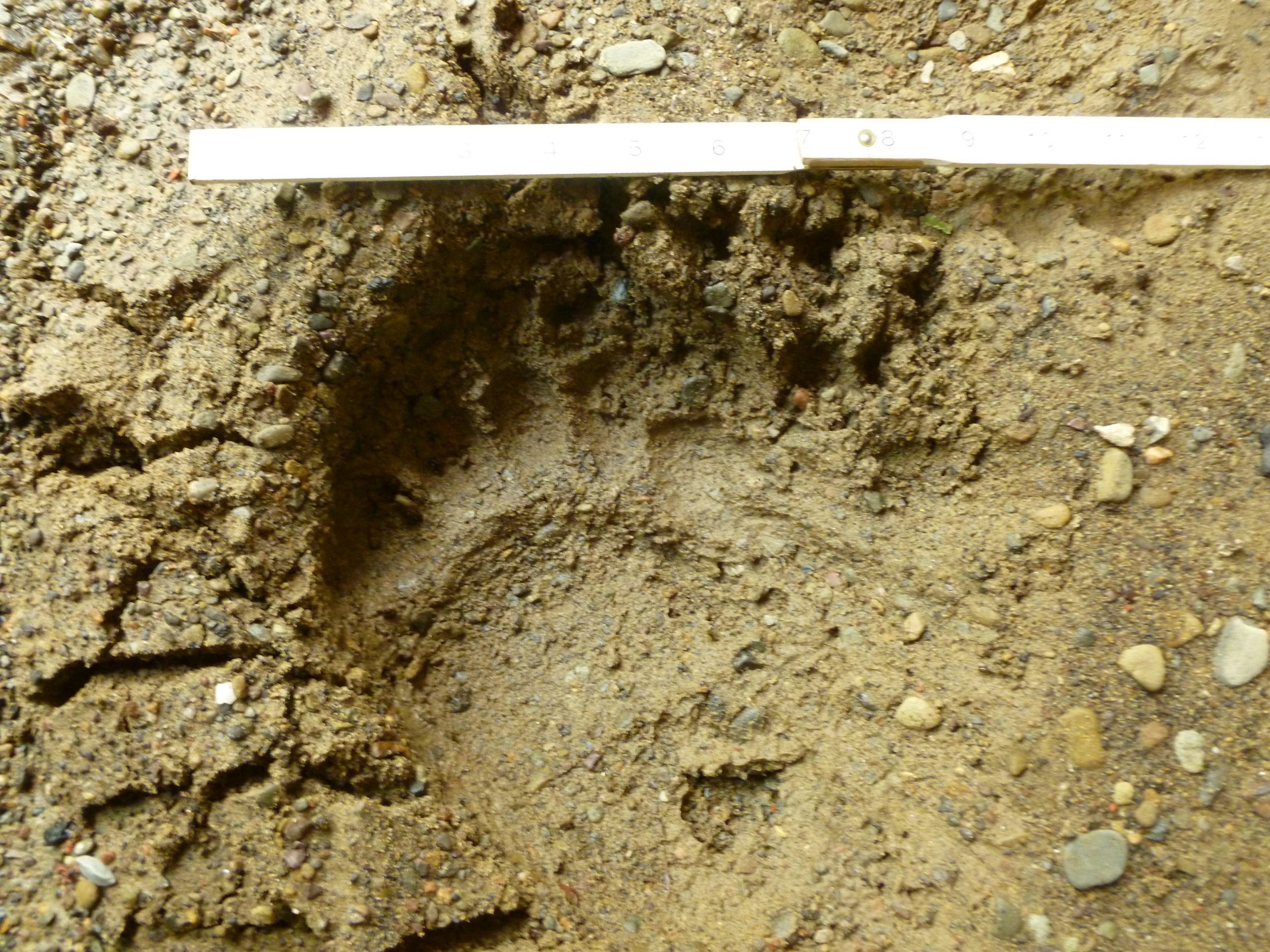
Image of bear tracks at a roadway underpass crossing.
Program Resources
Additional Resources

Public Involvement
We invite you to review the draft Wildlife Action Plan.
The intent of public outreach is to raise support for and consensus in the identification of priority wildlife corridors and priority projects across New Mexico and solicit input from interested community members, tribal entities, governments, and non-government organizations to find common ground and build partnerships for achieving the goals set out in the Act.
The comment period runs from January 12, 2022 to March 12, 2022. During this time period, two live virtual public meetings were hosted on February 1st and February 3rd, 2022. If you were unable to join a meeting, please watch the recorded presentation and Q&A sessions and review the draft Action Plan. Information on how to share your comments, can be found below.
2022 DRAFT NM Wildlife Corridor Action Plan (NMWCAP)
Public Meeting Events
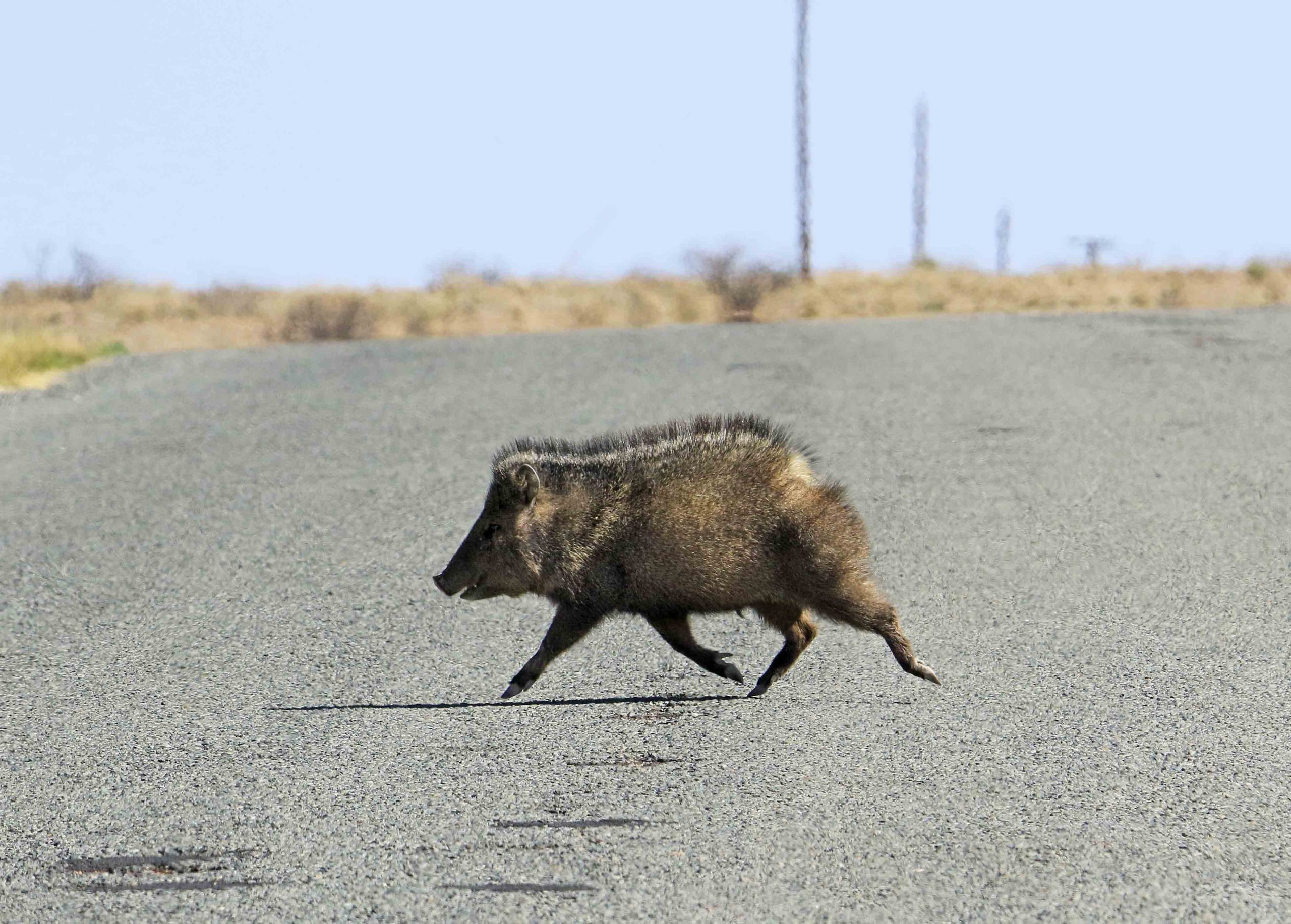
Public Meeting (Reunión Pública) for the Draft New Mexico Wildlife Corridors Action Plan by NMDOT and NMDGF
PDF of Public Mtg Presentation
Recording of Public Mtg Presentation
Recording of Public Mtg Q & A Session
February 1, 2022
Recording of Public Mtg Q & A Session
February 3, 2022
How to Provide Comments
We hope that you can share your input and support for potential actions that can increase public safety and promote wildlife habitat connectivity. For more information or to provide comments, please contact Matthew Haverland, NMDOT Wildlife Coordinator.
January 12th to March 12th, 2022
Email Us: Wildlife.Corridors@state.nm.us
Mail Us:
Draft Wildlife Action Plan
Attn: Matthew Haverland
1120 Cerrillos Road, Rm 206
P.O. Box 1149
Santa Fe, NM 87505
Call Us: (505) 470-3656
If no answer, please leave your name & best phone number and we will call you right back!

Program Contact
Matt Haverland – Wildlife Coordinator
NMDOT Environmental Bureau
P.O. Box 1149
Santa Fe, NM 87504
Email: wildlife.corridors@state.nm.us

